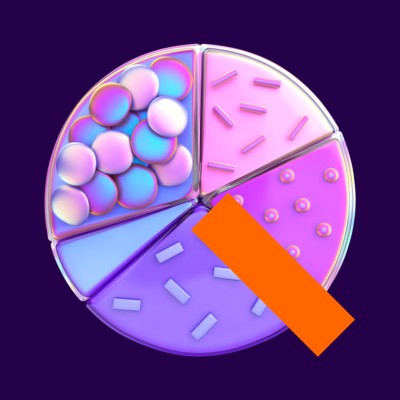Formo's $61M Leap: A New Era for Cheese Alternatives
September 10, 2024, 9:34 pm
In a world where food innovation meets sustainability, Formo is carving out a niche. The Berlin-based startup has raised $61 million in a Series B funding round, marking a significant milestone in the alternative protein landscape. This funding will fuel its mission to redefine cheese through fermentation, a method as ancient as bread-making but with a modern twist.
Formo's journey began in 2019, initially under the name LegenDairy Foods. The company focuses on harnessing the power of fermentation to create animal-free cheese alternatives. With the recent launch of its products in over 2,000 stores across Germany and Austria, Formo is ready to disrupt the dairy aisle. Its offerings, Frischhain and Camembritz, are crafted using koji protein, derived from the Aspergillus oryzae fungus. This microbe is a staple in Japanese cuisine, known for its role in making miso and sake.
The allure of koji lies in its remarkable similarity to whey protein, making it an ideal base for cheese alternatives. Formo’s process begins with cultivating koji in nutrient-rich environments, where it thrives and produces protein. This protein is then combined with plant-based fats to create creamy, flavorful cheese that mimics traditional varieties without the environmental toll.
Formo's recent funding round attracted a mix of existing and new investors, including FoodLabs, EQT Ventures, and The Nature Conservancy. This diverse backing underscores the growing interest in sustainable food technologies. Investors are betting on Formo not just for its innovative products but also for its potential to scale operations and achieve profitability by 2027.
The startup's environmental credentials are impressive. According to Formo, its Frischhain cheese generates 65% fewer emissions, uses 83% less land, and consumes 96% less water than conventional cream cheese. This sustainability angle is crucial in a market increasingly driven by eco-conscious consumers. As climate change looms large, the food industry is under pressure to adapt. Formo’s approach not only addresses this challenge but also offers a delicious alternative to traditional dairy.
Formo’s cheeses are not just about sustainability; they also deliver on taste and texture. The company has partnered with traditional cheesemakers to ensure that its products replicate the familiar mouthfeel of cheese. This collaboration bridges the gap between innovation and tradition, allowing Formo to leverage centuries of cheesemaking expertise while introducing a new paradigm of dairy alternatives.
However, the journey is not without its challenges. While koji protein offers a solid foundation, it lacks the meltability and stretchability of traditional dairy proteins. Formo acknowledges this limitation and is actively working on developing bioidentical casein proteins through precision fermentation. This technology aims to create hard cheeses that deliver the same sensory experience as their dairy counterparts. The company plans to launch these products in 2025, expanding its portfolio and appealing to a broader audience.
Formo's vision extends beyond mere product offerings. The company aims to become a leading brand in the cheese alternative market, positioning itself as a challenger to traditional dairy. This ambition is reflected in its commitment to direct consumer engagement, rather than simply supplying ingredients to other businesses. By building a strong brand identity, Formo hopes to capture the hearts and taste buds of consumers looking for high-quality, sustainable cheese alternatives.
The fermentation sector is gaining momentum, especially as investments in alternative proteins shift. While overall funding in the sector has seen a decline, fermentation companies like Formo are thriving. In the first half of 2024, fermentation startups attracted nearly as much funding as they did in all of 2023. This trend highlights a growing confidence in fermentation as a viable solution for sustainable food production.
As Formo continues to innovate, it is also mindful of its operational strategy. Rather than investing heavily in its own manufacturing facilities, the company is focusing on partnerships with established cheese producers. This approach allows Formo to scale production quickly while maintaining quality. By leveraging existing infrastructure, Formo can bring its products to market faster and more efficiently.
The regulatory landscape is another area of focus for Formo. The company is working to secure self-GRAS (Generally Recognized as Safe) status for its casein proteins, a crucial step in bringing its innovative products to consumers. Fortunately, koji, with its long history of safe use in food production, does not face the same regulatory hurdles.
In a market saturated with plant-based options, Formo stands out by blending tradition with innovation. Its commitment to sustainability, coupled with a focus on taste and texture, positions it well for future growth. As consumers increasingly seek alternatives to conventional dairy, Formo is poised to lead the charge.
In conclusion, Formo's $61 million funding round is more than just a financial boost; it’s a signal of a shifting landscape in the food industry. With its innovative approach to cheese alternatives, Formo is not just making waves; it’s creating a tidal shift. The future of cheese is here, and it’s animal-free, sustainable, and delicious. Game on indeed.
Formo's journey began in 2019, initially under the name LegenDairy Foods. The company focuses on harnessing the power of fermentation to create animal-free cheese alternatives. With the recent launch of its products in over 2,000 stores across Germany and Austria, Formo is ready to disrupt the dairy aisle. Its offerings, Frischhain and Camembritz, are crafted using koji protein, derived from the Aspergillus oryzae fungus. This microbe is a staple in Japanese cuisine, known for its role in making miso and sake.
The allure of koji lies in its remarkable similarity to whey protein, making it an ideal base for cheese alternatives. Formo’s process begins with cultivating koji in nutrient-rich environments, where it thrives and produces protein. This protein is then combined with plant-based fats to create creamy, flavorful cheese that mimics traditional varieties without the environmental toll.
Formo's recent funding round attracted a mix of existing and new investors, including FoodLabs, EQT Ventures, and The Nature Conservancy. This diverse backing underscores the growing interest in sustainable food technologies. Investors are betting on Formo not just for its innovative products but also for its potential to scale operations and achieve profitability by 2027.
The startup's environmental credentials are impressive. According to Formo, its Frischhain cheese generates 65% fewer emissions, uses 83% less land, and consumes 96% less water than conventional cream cheese. This sustainability angle is crucial in a market increasingly driven by eco-conscious consumers. As climate change looms large, the food industry is under pressure to adapt. Formo’s approach not only addresses this challenge but also offers a delicious alternative to traditional dairy.
Formo’s cheeses are not just about sustainability; they also deliver on taste and texture. The company has partnered with traditional cheesemakers to ensure that its products replicate the familiar mouthfeel of cheese. This collaboration bridges the gap between innovation and tradition, allowing Formo to leverage centuries of cheesemaking expertise while introducing a new paradigm of dairy alternatives.
However, the journey is not without its challenges. While koji protein offers a solid foundation, it lacks the meltability and stretchability of traditional dairy proteins. Formo acknowledges this limitation and is actively working on developing bioidentical casein proteins through precision fermentation. This technology aims to create hard cheeses that deliver the same sensory experience as their dairy counterparts. The company plans to launch these products in 2025, expanding its portfolio and appealing to a broader audience.
Formo's vision extends beyond mere product offerings. The company aims to become a leading brand in the cheese alternative market, positioning itself as a challenger to traditional dairy. This ambition is reflected in its commitment to direct consumer engagement, rather than simply supplying ingredients to other businesses. By building a strong brand identity, Formo hopes to capture the hearts and taste buds of consumers looking for high-quality, sustainable cheese alternatives.
The fermentation sector is gaining momentum, especially as investments in alternative proteins shift. While overall funding in the sector has seen a decline, fermentation companies like Formo are thriving. In the first half of 2024, fermentation startups attracted nearly as much funding as they did in all of 2023. This trend highlights a growing confidence in fermentation as a viable solution for sustainable food production.
As Formo continues to innovate, it is also mindful of its operational strategy. Rather than investing heavily in its own manufacturing facilities, the company is focusing on partnerships with established cheese producers. This approach allows Formo to scale production quickly while maintaining quality. By leveraging existing infrastructure, Formo can bring its products to market faster and more efficiently.
The regulatory landscape is another area of focus for Formo. The company is working to secure self-GRAS (Generally Recognized as Safe) status for its casein proteins, a crucial step in bringing its innovative products to consumers. Fortunately, koji, with its long history of safe use in food production, does not face the same regulatory hurdles.
In a market saturated with plant-based options, Formo stands out by blending tradition with innovation. Its commitment to sustainability, coupled with a focus on taste and texture, positions it well for future growth. As consumers increasingly seek alternatives to conventional dairy, Formo is poised to lead the charge.
In conclusion, Formo's $61 million funding round is more than just a financial boost; it’s a signal of a shifting landscape in the food industry. With its innovative approach to cheese alternatives, Formo is not just making waves; it’s creating a tidal shift. The future of cheese is here, and it’s animal-free, sustainable, and delicious. Game on indeed.

